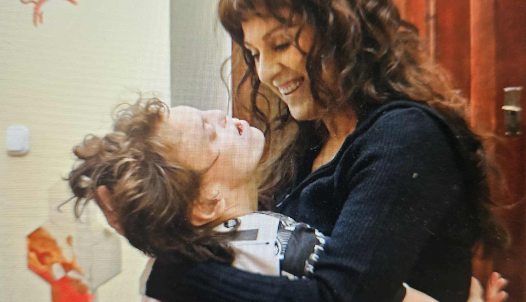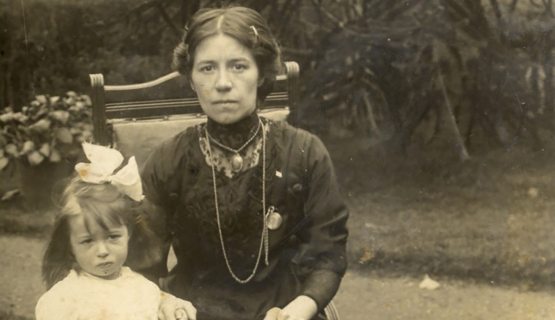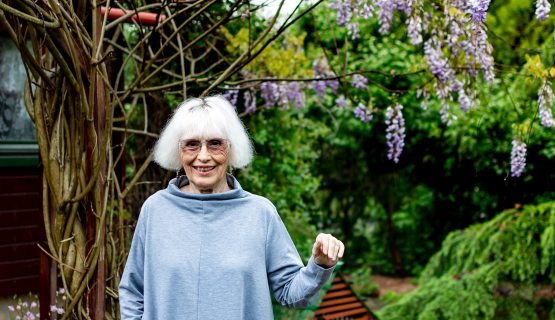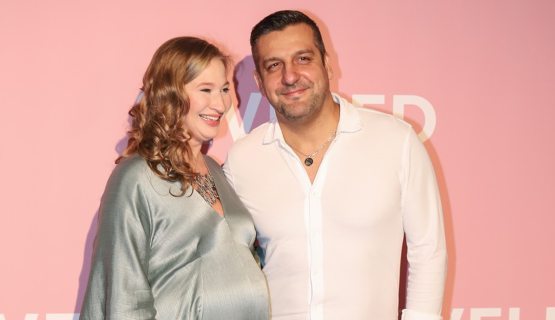“Being Hungarian is an incredible experience, despite the bitter pain.” In conversation with opera singer Levente Molnár
“Spiritually, I reckon viceroy (bán) Bánk was a Szekler, just as I am. I, too, have exactly the same emotional charge: I truly tremble for my country, the entire Hungarian community is really important to me,” says Levente Molnár, world-famous baritone, who has sung in virtually all the major opera houses of the world but who truly feels at home in the Carpathian Basin.

You were born in the Land of the Szeklers, in Remetea (Gyergyóremete), Romania, but you are also at home in the mother country and you have already performed in many places around the world. What does it mean to be a Hungarian from beyond the border?
“I reckon that there are two types of Hungarian from beyond the border. One is extremely rare: the person who, if they leave, do not get homesick. Luckily, there are more of us who represent the values of the land of our birth in the mother country and in the world, wherever we go. We consider it extremely important to show the people of Hungary, of the entire world, what values there are in, for example, Transylvania, among the Hungarians who live there, from where I come. So I’m satisfied with my life because I am also a representative of my homeland, in addition to being, as an artist, someone trying to convey the intellectual creations of the great composers. I am a figure who mediates, a person who is not seeking out the limelight but who really only wants to be and do something for the benefit of Hungarians.”
Berlin, Vienna, Bordeaux, Munich, London, Tokyo, Madrid… it is difficult even to list how many metropolises you have performed in. Is there anywhere you still long for?
“I’m not so keen on travelling abroad as I once was because over the past 15 years I’ve travelled around the globe several times.
“I feel at home in the Carpathian Basin, where I can get from anywhere to anywhere in a single day.
“Here, in this ancient spiritual cradle, I would like to undertake the search for talented individuals and the cause of my own art, opera. I am thinking of applying for the post of director of the Cluj-Napoca Magyar Opera because I have long been interested in running an opera house. I would like to link Budapest with the Land of the Szeklers because national borders cannot be a barrier to culture. We launched a Hungarian solo singing major at the Partium Christian University in Oradea; the course was oversubscribed and we enrolled hugely gifted students. In the past few years we have achieved great results and successes with similar initiatives, masterclasses, and we have even been able to take students abroad for performances. My dream is to link Szekler Land – Cluj-Napoca – Oradea – Budapest through vocal training and opportunities to appear on stage.”
While we are talking you are preparing for the dress rehearsal on stage. Soon you will be donning the costume of Bánk bán. The basis for the opera, the drama by József Katona, appeared in print 200 years ago, in autumn 1820. What is it like playing the title role in the Erkel opera?
“Spiritually, I reckon viceroy (bán) Bánk was a Szekler, just as I am.
“This is why Hungarians in the mother country think I make a good Bánk bán, because I have exactly the same emotional charge: I truly tremble for my country, the entire Hungarian community is really important to me. It is a huge burden to sing this, its emotional vibrations, because of the countless difficult decisions Bánk bán has to make the least bad decision so he is constantly vacillating, seeking answers, struggling… Attila Vidnyánszky's arrangement is brilliant.
“I have found that if a person frequently communicates the message of a treasured work such as, for example, Bánk bán, or frequently plays such great and noble opera heroes as I get the chance to, then after a time, and I say this without boasting, they begin to associate with the characters, or at least they take onboard their faith, strength, mission.”
How did you feel when you moved to Budapest at an early age?
“I was very forlorn because I didn’t know anybody. The artist and singing teacher Júlia Pászthy took me under her wing and looked after me. I remember that she gave classes free of charge because I couldn’t have paid for them anyway, and she selflessly, with all her heart and soul, helped out other Hungarians beyond the border as well. There are such good people about.
“I vowed to her that I would repay her kindness a hundred thousand times. Today, I also do what I can in this regard.”
It appears that your pathway to global fame was straight and free of obstacles. Even as a child you won folk singing competitions, you were taken on to the lyceum of arts in Miercurea Ciuc (Csíkszereda), then the solo singing faculty of Oradea Music Academy, followed at the age of 21 by the Hungarian State Opera, then famous opera houses abroad.
“It wasn’t as easy as it appears from the outside. You have to have strength of mind to take to the stage. Talent and a fine voice, these are just a couple of things, one needs the right mental frame, too, and this has to be strengthened in the same way in order to bear the stress. It may surprise you to know that I developed serious panic attacks due to the many sudden changes, the dozens of rapidly evolving events. One day I was flinging dung off the back of a cart and the next day I flew to New York. I went through a period when in just one week I sang four different parts in five different capitals. I felt so focused, I wanted to do so well that after a while I had a sharp pain here, a sharp pain there, or my head cramped up or my leg went numb. This also goes with the career, there is no way round it, you can’t tackle it with boxing gloves or a penknife, yet you still have to overcome it inside. Well, this takes up a person’s psyche and then it’s so easy to slip back. Luckily, I was able to get through this trying period without resorting to drugs, alcohol or other addictive substances.”
Do you have a formula on how to overcome symptoms caused by excess stress?
“I had a formula for it, which worked for a long time but then, from one minute to the next, it didn’t. This is a convoluted mind game which whispers, ‘slower, much slower!’
“The stage is my retreat, because there I have no problems.
“Recently, I have tried to pay attention only to what is important: what I do should be good, what I say on the stage, as I sing, should be excellent.”
Do you frequently return to the village of your birth?
“I love to go back to Remetea, where since 2017 I have been an honorary citizen – this is my greatest award! The Liszt Prize and all acknowledgements are also important to me. The Kriterion Wreath is particularly close to my heart, which I was given by Transylvanian Hungarians. I am constantly planning when I can go back home to Transylvania, the Land of the Szeklers, when I can be with my family there, to take excursions into the hills, when I can teach in Oradea… That Hungarian who frequently travels to Szekler Land for excursions, or visits relatives there, certainly won’t feel that Hungary is small, that we are few, because it takes a day to get there.”
Do you sense any disadvantages because you are a Hungarian from beyond the border?
“In general, it is not cool to be a Hungarian from beyond the border, many times we come up against mistrust because they fear Hungarians. Because the Hungarians dominated and dominate the Carpathian Basin up to today in terms of numbers, spiritually and talent-wise. The ancient Hungarian border does not need to be drawn because the Carpathians delineate it perfectly.”
Everything you say radiates a love of the homeland, a devotion to the affairs of Hungarians…
“We, Hungarian-speaking people, are unbelievably diverse!
“How differently we view the world and how differently we think of God, survival and the nation! Within the 15 million, there are numerous dialects, all sorts of folk music, traditions… Being Hungarian is an incredible experience, despite at the same time the bitter pain.”







